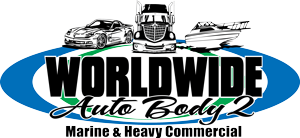
Cold Weather: Not a Friend to Heavy Machinery
We’ve all woken up in midwinter to the nightmare—stumbling into the driveway, coffee in hand, only to find our cars frosted over. But other than the dread of a cold drive to the office, cold weather can have a severe impact on vehicles and other heavy machinery. Let’s take a look at a few common problems which result from winter weather and then discuss some preventative measures.
Tire Problems
Regular year-round tires are made with a rubber compound that can harden at lower temperatures. While this may not seem like a big deal at first, it means that the tires lose traction, which can lead to serious mishaps and accidents while on the road or job site.
Hardening Fluids
A common problem in winter months is the danger of fluids freezing. Though most fluids used in heavy machinery can resist freezing in temperatures as low as -35 degrees, the danger is increased when fluids have not been changed in a long time. Additionally, oil can thicken in cold weather and lead to sludgy engines.

Increased Fuel Consumption
It’s easy to forget cold weather requires your equipment to use more fuel because engines run less efficiently in the cold. Another problem in modern vehicles is automatic interior heating systems. Yes, they make the car warmer for drivers, but they also pull energy and heat away from the engine, keeping it colder (and less efficient) for longer.
Slow Starts
Cold weather forces batteries to drain quicker, often leading to slow initial starts. However, this isn’t something you necessarily have to worry about in Winston Salem, North Carolina, as it normally happens in the colder, more extreme environments.
How Can I Prevent These Problems?
Now that we’ve seen several ways cold weather can negatively affect the operation of heavy machinery, let’s look at how to prevent those issues.
Winter Tires
Made with different compounds than all-season tires, winter tires retain their softness—and thus their grip on roadways—in cold weather. It’s an expense, but a significantly lower one than a wreck.
Regular Fluid Replacements
It’s important to have your equipment’s fluids checked and replaced. Using thinner oil is also recommended. Other fluids that need regular checkups include fluids for the radiator, hydraulics, brakes, and transmission.
Waiting to Heat the Equipment
Interior heating is great, but waiting about twenty minutes means the engine will receive the maximum amount of heat and will warm more quickly. A warmer engine means a more efficient engine, saving money on fuel consumption.
Battery Vigilance
In winter months, pay particular attention to signs of battery weakening. If you see these signs, it may mean a new battery is needed. Examples of what to look out for include:
- battery acid corrosion
- check engine lights
- problems with electrical systems
- an engine that takes longer than usual to start



Leave a Message
You must be logged in to post a comment.